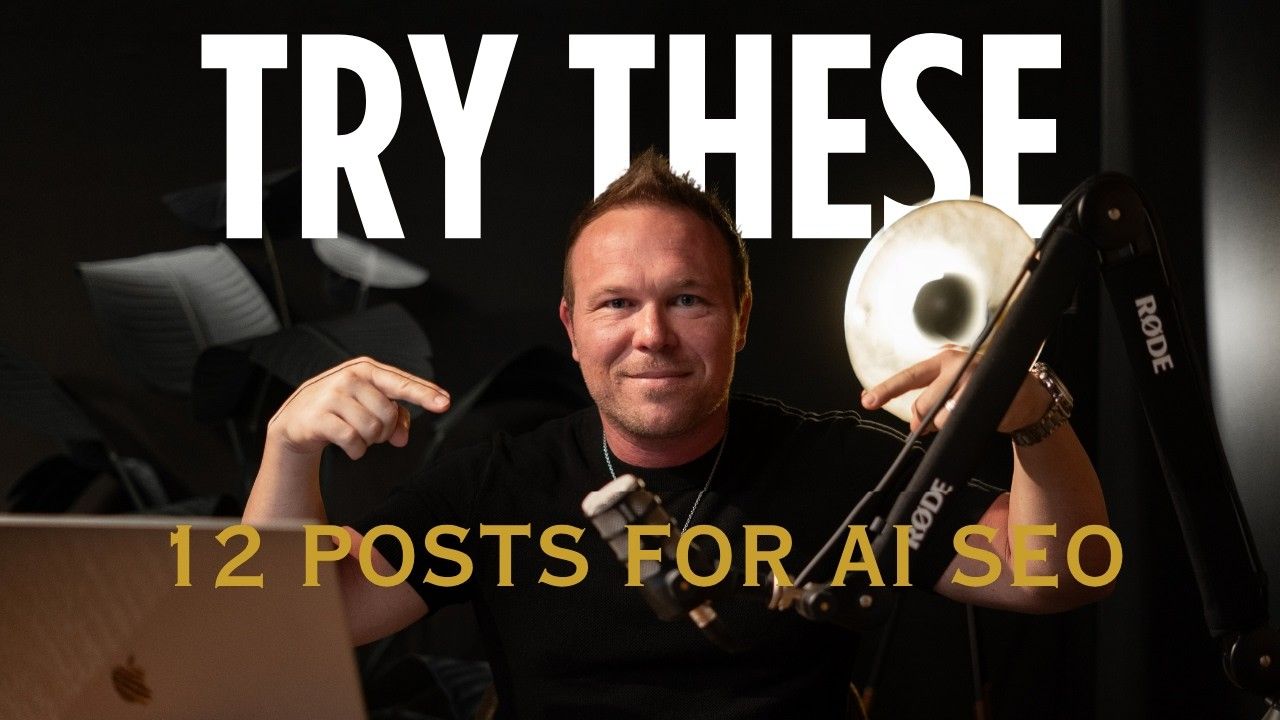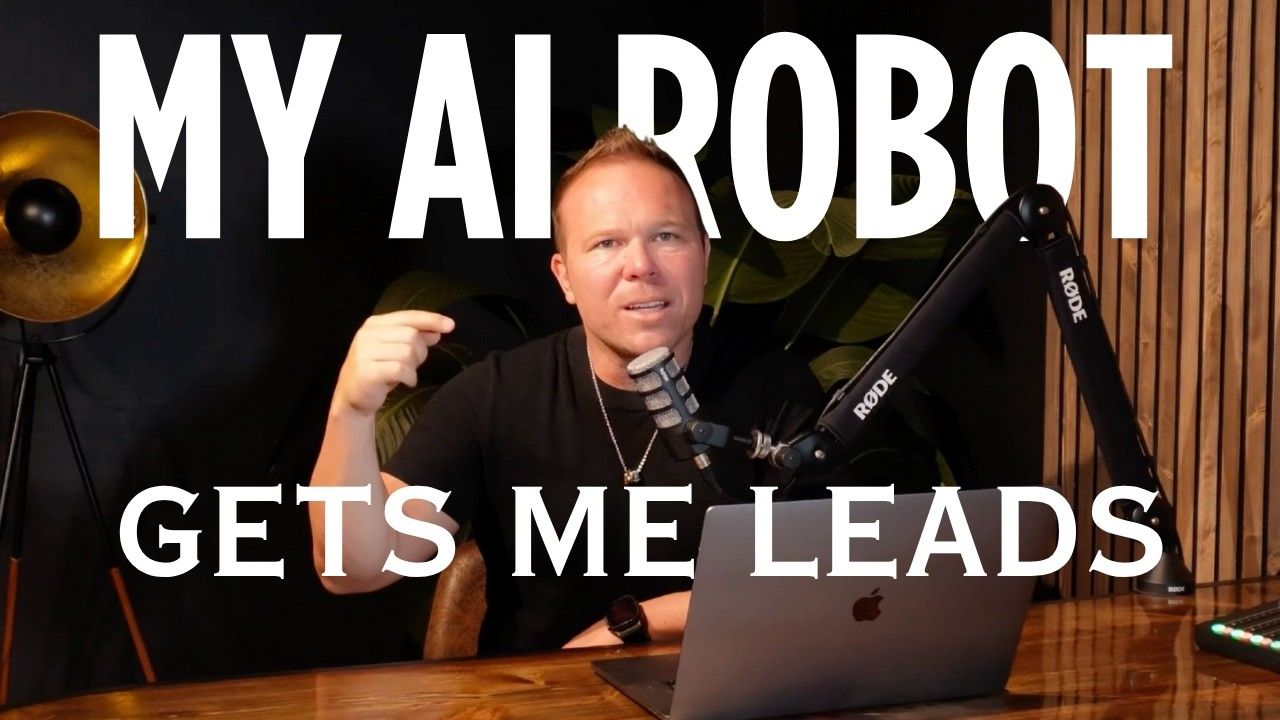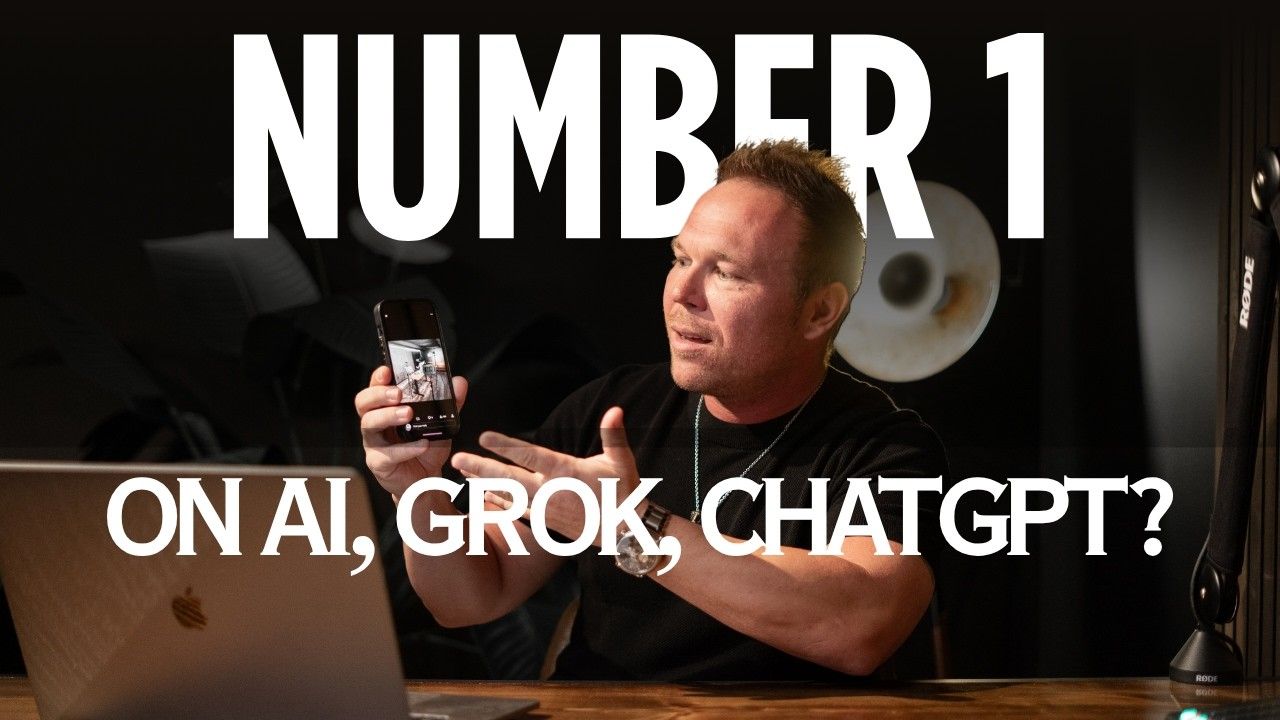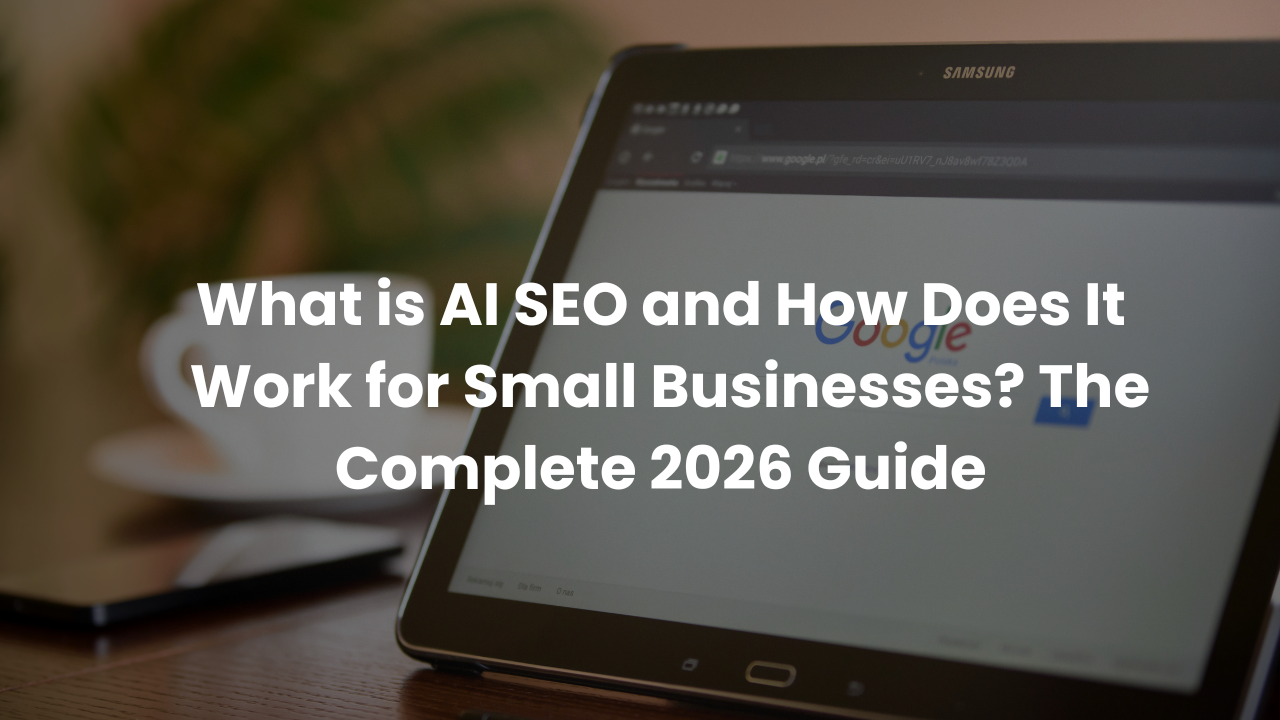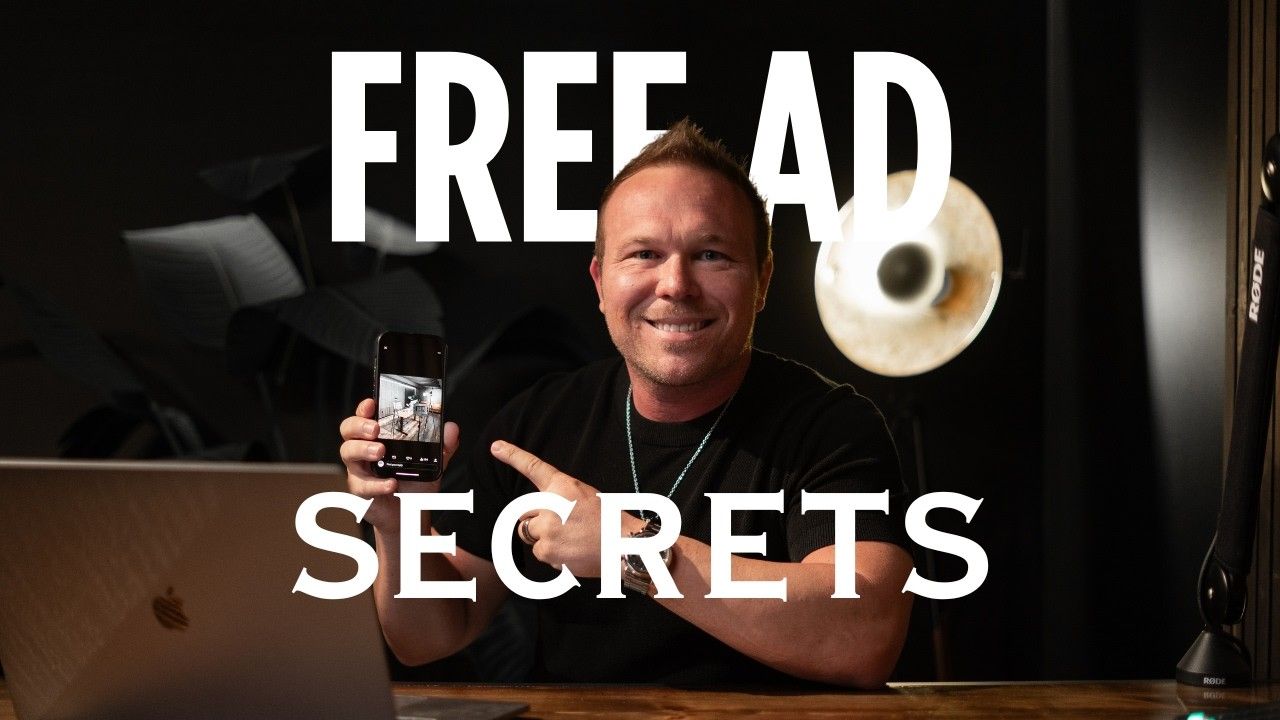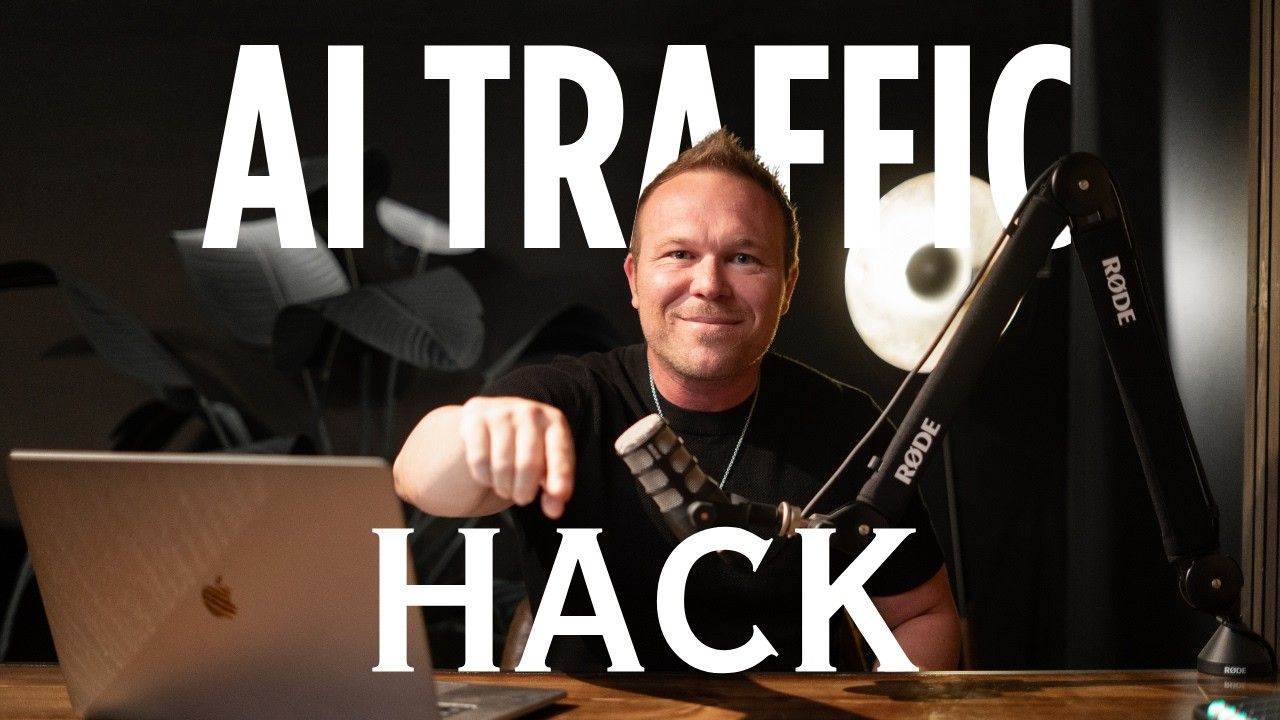How to Create Social Media Ads That Convert WITHOUT Big Budgets (Proven $5/Day Strategy)
Key Takeaways:
- Get pennies-per-click with follow campaigns that keep users on-platform
- Use consistent branding across all platforms to build recognition and trust
- Focus on relationship-building first, then retarget website visitors with Google Performance Max
- Build top-of-funnel awareness with low-cost ads before driving expensive conversions
- Leverage organic content and follow-up sequences to close deals, not initial ads
The $5/Day Strategy That Actually Works
I've been doing this marketing stuff for the last 10 years and worked with over 2,500 brands. Through all that experience, I've discovered something that might surprise you: this ad strategy works so well, I only have to spend $5 a day on ads across X, Meta, and YouTube to generate the most leads.
- Instead of trying to get people to leave the platform (which costs dollars per click), focus on keeping them on-platform with follow campaigns that cost pennies per click. Build relationships first, then use retargeting to close deals.
- Time to See Results: Immediate penny-per-click costs for engagement, relationship building over time
- Best For: Business owners who want maximum ROI from minimal ad spend
What is a Follow Campaign (And Why It Costs Pennies)
Here's what I usually recommend: setting up follow campaigns to start because these platforms don't want their users leaving their platform. They'll charge you more if you try to drive people away.
So, if I keep them on the site, and I say, "Hey, just follow me. Just connect with my page. Just leave a comment." That's where I'm going to get pennies per click. I'm going to get new followers, people to start engaging with me, and hopefully somebody goes and clicks the link in my bio.
- Key Point: Platforms reward ads that keep users engaged on their platform
- How It Works: Focus on follows, engagement, and comments rather than external clicks
- Tools Needed: Native ad platforms (X, Meta, YouTube) with engagement objectives
The secret is understanding platform incentives. When you align your ad goals with what the platform wants (keeping users engaged), you get rewarded with lower costs.
How to Use Meta Ads Without Driving Users Off-Site
The next thing I want to do is something similar on my Meta ads. I just want them to stay on Facebook, stay on Instagram, connect with me so I can build that relationship with them.
From there, after they go ahead and see my ad, I like to go and set up secondary ads where I start talking about business. So now, maybe they saw my face. We want them to see your brand. We want you to be recognizable. And then what we want to do is show a follow-up ad that maybe has some education, has some relationship builders, and some ways for them to learn more.
The Brand Consistency Secret
What I like to do is pretty much just keep this simple on Meta. And I like to have these face pictures here. Keep your bio picture the same as well. If you come over here to my X account, I've got this blue background with my white shirt. And if you see my Instagram and Facebook page, I've got this blue background with my white shirt. And then on my YouTube as well, I have that black background or blue background with the white shirt.
People are going to start recognizing you. I want to keep this similar background, this similar font, this similar colors. I want them to see this similar profile picture on all platforms so then they start remembering you. If you start using different pictures, different descriptions, different things, they're going to think you're a different company and they won't remember you. And that's the key with ads. You want to make sure people never forget.
The Two-Step Meta Process:
- Personal Connection: Follow me, stay on platform, pennies per click
- Educational Content: Show expertise, build trust, provide value
For more on optimizing your Meta advertising strategy, see Meta Ads.
What is Performance Max and How to Use It for Retargeting
The last place that I like to go is over into Google and YouTube. And what you can do with these PMAX campaigns is show anyone that's visited your website an ad on all these different platforms.
You can see here you can click on all platforms and I've got retargeting ads across all of them. On search you can show up, on display you can show up. I love YouTube. This is where I place my YouTube videos so they see a YouTube video every time they're on YouTube, on discover and Gmail.
- Key Point: Once somebody goes to your website, they already like and trust you a little bit
- How It Works: Set up Google Tag Manager and Google Tag Pixel to track website visitors
- Time to See Results: Immediate retargeting across all Google networks
Now, once somebody goes to your website, that means they already like you and trust you a little bit to go check out your website and see what you offer. That's when you want to head over to Google and you want to set up ads across all platforms with the pixel. You want to make sure you set up a Google Tag Manager, Google Tag Pixel in your site. So, anyone that visits your website will start seeing your ads across all the different networks.
What's that going to do is they're going to start trusting you. They're going to start remembering you and when they need help with this follow-up stuff or whatever you're specialist at, they're going to click on the ad and they're going to say, "All right, I'm ready to schedule that call."
For detailed Google advertising setup, check out Google Ads.
How to Retarget on YouTube, Discover & Gmail
So what you want to do is really bring in these people. We call it top of funnel with low-cost ads into your systems, into your profiles. What I want is people to find my ad, hear about me for the first time on X, Meta or Instagram, and then what I want them to do is stay on platform and I'm just basically trying to build that relationship.
And that's where I see ads working the best: building better relationships with your followers.
The Complete System Flow
- Top of Funnel: Low-cost follow campaigns on X and Meta
- Relationship Building: Educational content, consistent branding
- Website Visits: Organic clicks when they're ready
- Retargeting: Performance Max across all Google networks
- Conversion: Established trust leads to scheduled calls
From there, continue posting organic, helpful content, just like I'm showing here. I post helpful content. So now people see that I'm out there helping them, and I'm just using ads to retarget.
For YouTube-specific strategies, explore YouTube Ads.
Why This Approach Converts Better Over Time
I really hope you focus on building relationships with ads. That's where I see the best results. Like I mentioned in the beginning, if you use an ad to try to get somebody to go book a call or go to your website, you're going to pay dollars per click. Ad platforms don't want their users leaving.
If you focus on building relationships, getting them to engage and follow you, you're going to use ads for pennies per click, and then your organic and your follow-up retargeting to close the deal.
The Cost Difference:
- Traditional Approach: Dollars per click for conversion-focused ads
- Relationship Approach: Pennies per click for engagement, organic conversion
- Use low-cost top-of-funnel ads to build relationships, then let organic content and retargeting close deals
- Platform algorithms reward engagement-focused ads with lower costs
- Sustainable lead generation at fraction of traditional ad costs
For comprehensive lead generation strategies, see How to Get More Leads Using Marketing Systems.
Advanced Implementation Tips
Setting Up Your Follow Campaigns
X Platform Strategy:
- Focus on "follow me" calls-to-action
- Keep users on platform with engagement objectives
- Use consistent blue background, white shirt branding
- Link to bio for eventual website visits
Meta Platform Strategy:
- Start with personal connection ads
- Follow up with educational content
- Maintain brand consistency across Facebook and Instagram
- Build relationships before selling
Google Performance Max Setup:
- Install Google Tag Manager and tracking pixels
- Target website visitors across all networks
- Place YouTube videos on Search, Display, Gmail, and Discover
- Focus on people who already showed interest
For detailed CRM integration to track these leads, visit CRM Setup.
The Brand Recognition Formula
The key insight from my 10 years of experience: consistency creates recognition, and recognition builds trust. When someone sees your blue background and white shirt across X, then Instagram, then YouTube ads, they start to remember you as a trusted source.
This recognition factor is what makes the low-cost approach work. Instead of interrupting strangers with expensive conversion ads, you're building familiarity that leads to organic conversions.
For more relationship-building strategies, see Building Trust Through Relationships.
Recommended Tools for $5/Day Strategy
To implement this system effectively, I recommend:
- Social Media Automation: HypeFury for consistent posting
- CRM Management: GoHighLevel for lead tracking
- Ad Tracking: AdKong for performance monitoring
- Website Building: Duda for conversion-optimized pages
These tools help automate the relationship-building process while maintaining the personal touch that makes this strategy work.
Your Next Steps
Start implementing this $5/day strategy today:
- Set up follow campaigns on X and Meta with engagement objectives
- Create consistent branding across all platforms (same profile photo, colors, messaging)
- Install tracking pixels for Google Performance Max retargeting
- Focus on relationship building rather than immediate conversions
- Monitor costs - you should see penny-per-click engagement rates
The beauty of this system is its sustainability. Instead of burning through budget on expensive conversion ads, you're building a foundation of relationships that convert organically over time.
If you want the complete ad system I use, comment "system" and someone from my team will send it over. For more strategies on building relationships through marketing, subscribe to my channel and check out X Twitter Ads for platform-specific tactics.
Final Key Takeaway: Platforms reward ads that keep users engaged on-site with dramatically lower costs. Use this to build relationships at penny-per-click rates, then let organic content and retargeting close the deals.
Get more strategies: Subscribe here
How much should I spend per platform daily?
I recommend starting with $5 total across all platforms - roughly $1.50-2 per platform. Focus on engagement objectives to get penny-per-click costs.
What if my follow campaigns aren't getting engagement?
Make sure you're using platform-native objectives (follows, comments, engagement) rather than traffic or conversion objectives. The platforms reward keeping users on-site.
How long before I see website visits from this strategy?
You'll see engagement immediately at penny costs. Website visits typically increase over 2-4 weeks as relationships build and people naturally click bio links.
Should I use the same creative across all platforms?
Yes, but optimize for each platform's format. Keep the same blue background, white shirt branding I use, but adjust dimensions and copy for each platform's best practices.
How do I track if this is working better than conversion ads?
Compare your cost-per-click on engagement vs. conversion objectives. You should see 10-20x lower costs on engagement campaigns, with organic conversions increasing over time.
What type of educational content works best for follow-up ads?
Focus on your core expertise - for me, it's follow-up systems and relationship marketing. Share tips, insights, and helpful content related to your specialty without trying to sell.
How many retargeting ads should I run on Google?
Start with 2-3 ad variations across Performance Max. Let Google's algorithm optimize placement across Search, Display, YouTube, Gmail, and Discover networks.
Can this work for B2B companies?
Absolutely. The relationship-building approach often works better for B2B since decision cycles are longer and trust is more important than impulse purchases.
What's the biggest mistake people make with this strategy?
Trying to rush the relationship-building phase. Focus on providing value and building recognition before expecting conversions. Patience leads to better long-term results.
How do I know when someone is ready to move from social media to my website?
Look for increased engagement, comments on posts, and direct messages. These signals indicate growing interest and readiness to learn more about your services.


